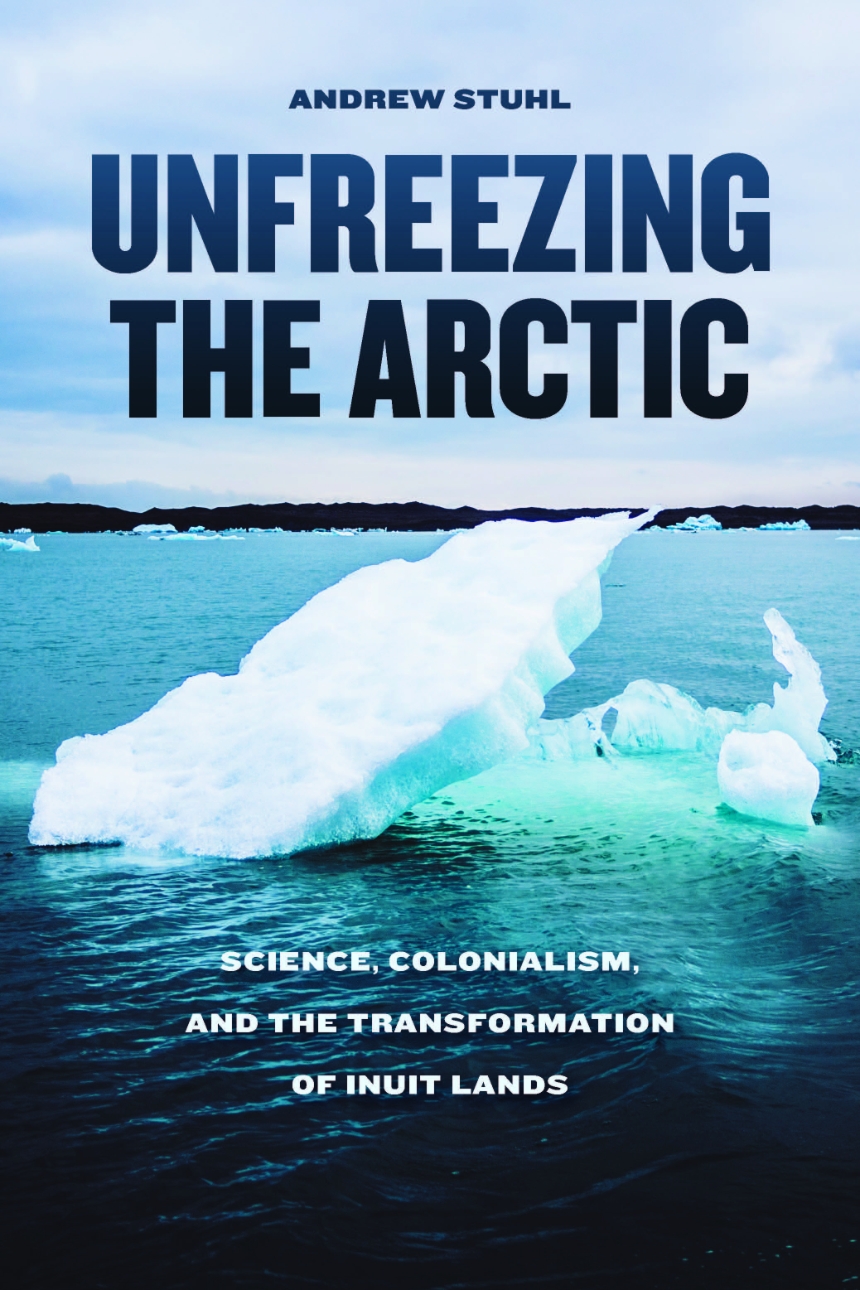Unfreezing the Arctic
Science, Colonialism, and the Transformation of Inuit Lands
Unfreezing the Arctic
Science, Colonialism, and the Transformation of Inuit Lands
Publication supported by the Bevington Fund
In Unfreezing the Arctic, Andrew Stuhl brings a fresh perspective to this defining challenge of our time. With a compelling narrative voice, Stuhl weaves together a wealth of distinct episodes into a transnational history of the North American Arctic, proving that a richer understanding of its social and environmental transformation can come only from studying the region’s past. Drawing on historical records and extensive ethnographic fieldwork, as well as time spent living in the Northwest Territories, he closely examines the long-running interplay of scientific exploration, colonial control, the testimony and experiences of Inuit residents, and multinational investments in natural resources. A rich and timely portrait, Unfreezing the Arctic offers a comprehensive look at scientific activity across the long twentieth century. It will be welcomed by anyone interested in political, economic, environmental, and social histories of transboundary regions the world over.
The author intends to donate all royalties from this book to the Alaska Youth for Environmental Action (AYEA) and East Three School's On the Land Program.
224 pages | 13 halftones, 1 line drawing | 6 x 9 | © 2016
Earth Sciences: Environment, History of Earth Sciences
History: Environmental History
Physical Sciences: History and Philosophy of Physical Sciences
Reviews
Table of Contents
Note on Terminology
Introduction
Is the Arctic out of Time?
Chapter One
Dangerous: In the Twilight of Empires
Chapter Two
Threatened: The Ambitions and Anxieties of Expeditions
Chapter Three
Wild: Taming the Tundra
Chapter Four
Strategic: Defense and Development in Permafrost Territory
Chapter Five
Disturbed: The Impacts of a Postcolonial Moment
Epilogue
Unfrozen in Time
Acknowledgments
Archival Collections
Notes
Selected Bibliography
Index
Awards
Forum for the History of Science in America: Philip J. Pauly Book Prize
Short Listed
